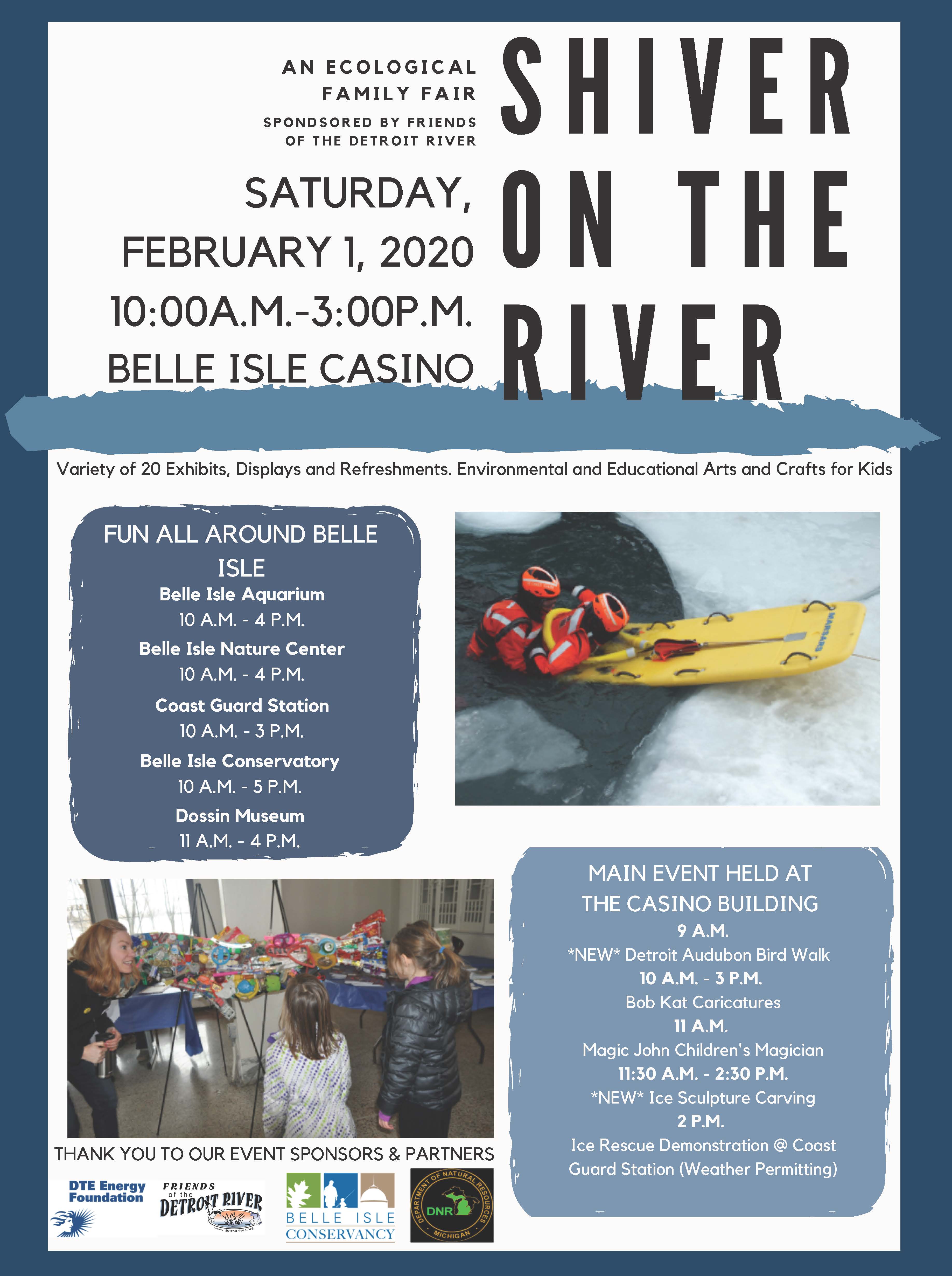Shiver on the River coming to Detroit's Belle Isle on Feb. 1
Don't miss this free family friendly environmental event in southeast Michigan!

Looking for something fun to do with the family in southeast Michigan? Join hundreds of people at Shiver on the River Feb. 1, 2020, on Belle Isle in Detroit.
Participants can explore the many different venues on the island and learn about exciting environmental happenings on the Detroit River and beyond. From 10 a.m. to 3 p.m., more than a dozen organizations, including Friends of the Detroit River, Michigan Sea Grant, and the Detroit River International Wildlife Refuge will have informational booths to visit and kids activities at the Casino Building (indoors!). Michigan Sea Grant will have samples of plants and animals that are invading the Great Lakes as well as native fishes.
The event is free with lots of hands-on environmental arts & crafts for kids, so plan now to attend!
Also FREE at the Casino Building:
- 10 a.m.-3 p.m.: Bob Kat Caricatures

- 11 a.m.: Magic John Children’s Magician
- 11:30 a.m.-2:30 p.m.: Henry Ford Ice Carving Club Demos (new this year!)
Participants will also have the opportunity to learn about an exciting habitat restoration project on Belle Isle at Lake Okonoka, which Michigan Sea Grant is helping with.
Other island attractions open during Shiver on the River include the Belle Isle Aquarium, Nature Center, Coast Guard Station, Conservancy and Dossin Museum. Belle Islea directions and access information is available online. Every vehicle entering Belle Isle must have a Michigan Recreation Passport.
Michigan Sea Grant helps to foster economic growth and protect Michigan’s coastal, Great Lakes resources through education, research and outreach. A collaborative effort of the University of Michigan and Michigan State University and its MSU Extension, Michigan Sea Grant is part of the NOAA-National Sea Grant network of 34 university-based programs.
This article was prepared by Extension educator Mary Bohling under award NA14OAR4170070 from the National Oceanic and Atmospheric Administration, U.S. Department of Commerce through the Regents of the University of Michigan. The statements, findings, conclusions, and recommendations are those of the author(s) and do not necessarily reflect the views of the National Oceanic and Atmospheric Administration, the Department of Commerce, or the Regents of the University of Michigan.



 Print
Print Email
Email

